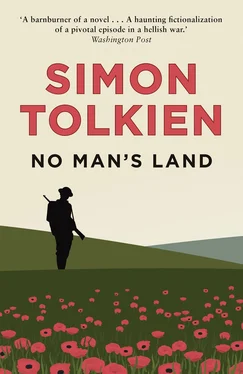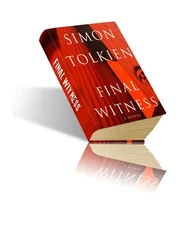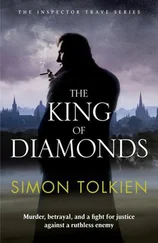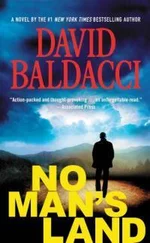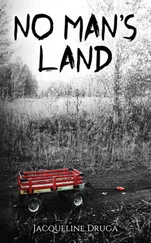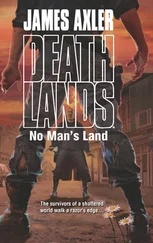‘I’m done,’ he said. ‘You carry on if you want to. I knew this mine’d be the death of me the first day I went down it. I’d ’ave been better off if I’d cashed in me chips when that friggin’ pony kicked me. It’d ’ave saved me a lot o’ grief.
Adam tried to find some words of comfort or encouragement but he could think of nothing. All that was keeping him standing was the stubborn animal refusal to be beaten that had enabled him to endure so much misfortune already in his life. It was an undying spark somewhere deep inside him that stopped him giving in even when his brain told him there was no point in continuing, and now it forced him to bend down and pick up the lamp and go on.
‘I’ll be back,’ he said, looking at Rawdon for a moment before he left him in the darkness. But there was no reply: Rawdon had slumped over on to his side and seemed to be asleep.
Once again, passing between the pillars of coal, Adam thought of the beautiful silver-white temples of Greece and Sicily, bathed in sunlight, that he now would never see. The outer columns collectively called the peristasis which surrounded the pronaos , the four-sided porch that led in turn through a beautifully carved set of double doors to the cella , the holy of holies at the centre of the building that housed the exquisite statue of the god which only his priests were ever allowed to see.
Except of course that there was no God or gods – of that Adam was by now quite certain. His mother and Parson Vale and the ancient Greeks were fools – poor credulous fools; at the centre of everything was nothing, just a vast emptiness in which your voice echoed back off the walls. Echoes of echoes: that was all.
At the end of the hall, Adam reached the crossgate where he had stood with Rawdon hours before. He was almost certain they had gone to the right, although the more he thought about it, the less sure he was. The darkness unsettled his memory and he hesitated, turning the lamp from side to side in a vain attempt to find something he recognized before he followed his first instinct and went left.
Almost immediately the path sloped uphill and the quality of the air seemed to improve. A few turnings later and he stumbled out into a wide open space and looked up to where the downcast shaft rose up half a mile to the surface. At the top the underside of the suspended cage blocked most of Adam’s view of the sky and the dim light which did get through gave him no clue as to the time of day. He shouted for help until he was hoarse but there was no response except the mocking echo of his voice bouncing back to him off the red bricks lining the sides of the shaft. Rawdon had been right – there was nobody looking for them.
But there was still hope: from just above Adam’s head an iron ladder cemented into the brickwork ran straight as a die up the side of the shaft towards the surface. In the lamplight Adam could see its rusty brown side rails and narrow treads ascending into the gloom.
Rawdon was asleep on the floor when Adam got back to him, and he had to shake him awake.
‘Maybe we can wait,’ said Rawdon as he limped after Adam. ‘The miners’ll be back down ’ere soon. When no one’s working, the owner’s losin’ money and that matters to ’im a sight more’n respect for the dead, you mark my words.’
‘You’re worried about the ladder?’ asked Adam when they got back to the shaft.
‘Of course I bloody am. It’s been there forever an’ no one ever uses it or keeps it repaired. We’ll get ’alfway up an’ then we’ll come fallin’ back down again an’ drown in that sump down there,’ he said, pointing to the evil-smelling black pond at the bottom of the shaft.
Adam examined the bottom rungs of the ladder with the lamp and found it hard to disagree with Rawdon’s verdict. The brick lining the shaft was damp and mouldy and the brackets holding the side rails in place gave way alarmingly when he pulled on the two that were within reach. There had to be over a thousand treads between them and the surface and what were the chances that they would all hold?
He hesitated, uncertain of what to do. His instinct was to climb but common sense told him to wait. And perhaps he would have stayed below if the changing light of the lamp hadn’t taken the decision out of their hands. The flame had seemed to expand when they came out on to the landing by the shaft and now there was no mistaking its signal. There was firedamp in the air, probably spreading back from the fire, blown down the tunnels by the mine’s ventilation system. They couldn’t sit and wait for it to explode.
‘You go first,’ said Rawdon. ‘I’ll follow.’
‘Why?’ Adam asked, surprised.
‘It doesn’t matter. Just do it,’ Rawdon said irritably.
Something in Adam always rebelled against being told what to do when he wasn’t given a reason for doing it, and he was about to argue the point further – but then stopped, biting back his words, as he suddenly grasped where Rawdon was coming from. With his damaged leg Rawdon was clearly the one most likely to fall and logically that meant he should climb behind. If he went first he would bring Adam down when he fell; going second, he would fall to his death alone.
‘I’ll not go too fast,’ he said, looking Rawdon in the eye as if making a promise.
Rawdon nodded brusquely and then turned away, picking up the lamp. ‘Here, you’re going to need this – fasten it on to your belt,’ he said, showing Adam how the attachment worked.
‘Thanks,’ said Adam. He breathed deeply, wiped the sweat from off his hands, and began to climb.
To begin with, he made the mistake of looking up above his head, trying to measure the distance to the top. It quickly made him giddy and he had to hold still, waiting for the nausea to pass. And looking down was worse: below Rawdon the black water at the bottom of the shaft seemed to rise up to meet him. Slowly he trained himself to keep his eyes fixed straight ahead on the damp bricks passing slowly by as he climbed higher and higher up the rungs of the ladder.
But even if Adam wasn’t looking down at Rawdon, he could still hear him, and it was obvious from his laboured breathing and half-stifled cries of pain that the climb was taxing him to the limit of his endurance. Again and again Adam had to force himself to wait so that Rawdon wouldn’t get left behind in the darkness.
It quickly got colder as they neared the top so that the rusty red side rails felt icy in their sore hands, and as they gripped them harder, the iron brackets cemented into the damp wall seemed to give. Only one needs to come away, Adam thought, only one, and it will all be over. And part of him welcomed the thought – an end to the pain and the struggle and the terrible fatigue as they fell down, down, down into nothingness.
But it wasn’t Adam who fell; it was Rawdon. And it wasn’t a loose bracket or a broken tread that made him lose his footing; it was a rat. They’d heard them scuttling away into niches in the sides of the shaft as they climbed but this one was different. Perhaps it was sick and that was why it stayed lying on the tread as Adam went past it without noticing, but it was alive enough to react fiercely when Rawdon’s hand, following behind and reaching for the rung, came down on its back. The rat’s head shot round and it bit down hard on his wrist. Rawdon screamed – a terrible gut-wrenching scream that reverberated up and down the shaft – and pulled away, throwing the rat off so that it flew back against the opposite wall and then fell, turning over and over, bouncing off the masonry until it landed with a splash in the sump at the bottom that the boys would have heard if they had been listening.
But they weren’t. As the rat let go of Rawdon’s wrist, Rawdon let go of the ladder. Falling back, he instinctively grabbed hold of one of the steel guides that the cage used for its descents, and after a moment he was able to loop his feet around it too. But that was the limit of his good fortune. The guide was just too far away from the ladder for him to be able to reach it with his hand. He realized immediately that there was nothing he could do to save himself and he clung to the guide with his last remaining strength only in order to prepare himself to fall.
Читать дальше
